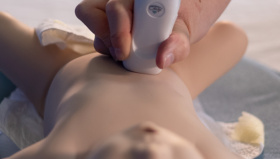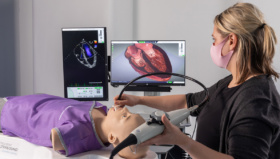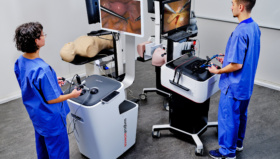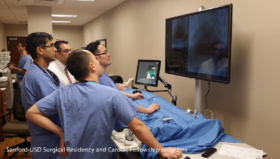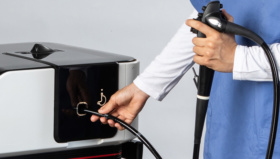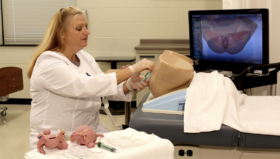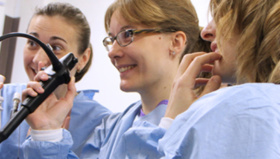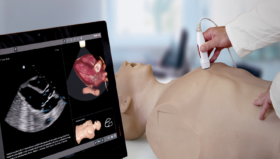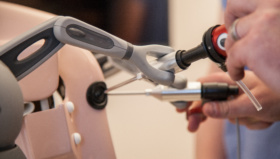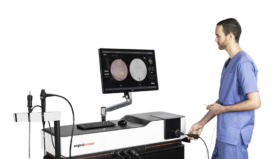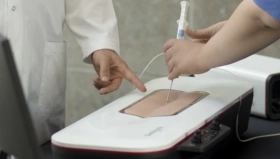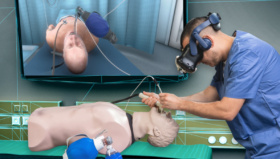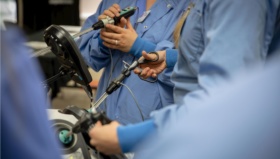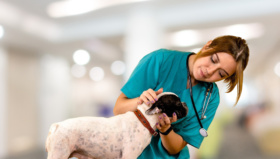The new modules allow urology trainees to practice treatment of benign prostatic hyperplasia (BPH) in a safe environment and make the URO Mentor the most comprehensive VR simulator for endourology training.
Surgical Science is delighted to announce the launch of two additional modules for its leading URO Mentor simulator. The new modules will help train the next generation of urology specialists on how to perform TURP procedures for the treatment of BPH (enlarged prostate).
With these additions, the URO Mentor becomes the most comprehensive simulator on the market, allowing medical training facilities to cover a broad range of urology procedures.
As with all simulation tools from Surgical Science, the new TURP modules immerse learners in a hyper-realistic computer-generated environment, providing a unique opportunity to work with real adapted scopes while visualizing true-to-life endoscopic displays.
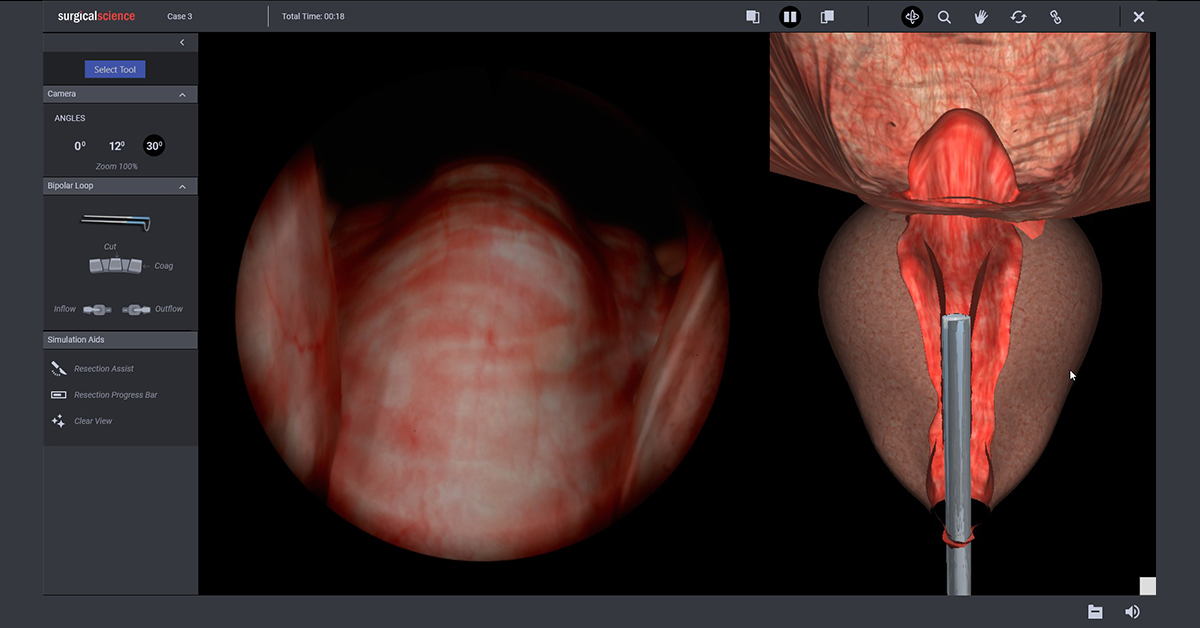
What Is TURP?
TURP is a minimally invasive procedure for transurethral resection of the prostate. It is one of the preferred treatment pathways for benign prostatic hyperplasia (BPH) – also referred to as an enlarged prostate – which is one of the most common conditions found in men as they get older.
The prostate is a small gland that helps produce semen. It is found just below the urinary bladder, and it often gets bigger as men get older. TURP is a surgery to remove parts of the prostate gland through the penis, without the need for incisions. The surgeon reaches the prostate by putting an instrument called a resectoscope into the urethra.
Patients presenting with BPH are offered a variety of surgical and non-surgical treatments, with TURP being one of the most cost-effective and common. The UK’s King Charles recently underwent a TURP procedure as part of his treatment for BHP.
The Need for Simulation Training
For training facilities, ensuring trainees are fully prepared for performing these types of procedures can be challenging.
“BPH is a common issue for men as they get older, but its treatment is quite complex,” says Noa Shani Meir, Senior Product Manager at Surgical Science. “As with any surgical procedure, the traditional ‘apprenticeship’ training model can be problematic, because most patients prefer the reassurance of having an experienced practitioner. Simulation provides great benefits to training across urology departments as it allows trainees to get a real feel for the procedures and reach high levels of proficiency before encountering live patients.”
Two New Modules for Complete TURP Proficiency
Developed in collaboration with leading physicians in the field, the two new TURP modules deliver hyper-realistic 3D visualizations and allow trainees to familiarize themselves with real resectoscopes and other instruments.
In the TURP Basic Skills module trainees learn the essential skills, working to improve eye-hand coordination and become familiar with straight and angled camera manipulation, spatial awareness and the use of angled optics. Trainees can also practice resection and bleeding control tasks, all in a safe environment.
The TURP Full Procedure module offers hands-on training of BPH resection, providing trainees with a variety of different scenarios and complications that can arise during TURP procedures. Trainees can practice hands-on resection, visualization of anatomical landmarks, management of irrigation fluid, and bleeding control.
Both modules deliver detailed insights and performance data enabled by Surgical Science’s MentorLearn learning management system, meaning trainers can measure the success of each trainee, and the trainees themselves can track their progress through the course.
Addition of TURP Modules Makes URO Mentor the Definitive Urology Simulator
The URO Mentor simulator already enabled trainees to hone their skills on a variety of endourology diagnostic and therapeutic procedures, including cystoscopy, ureteroscopy, stone manipulation, and stricture treatment.
The addition of the TURP modules broadens this still further, helping trainee urologists improve their surgical skills and safety, and giving them all the preparation they need to perform these procedures in real life.
Following soon will be further modules for Laser BPH treatments and TURBT (Transurethral Resection of the Bladder Tumor) procedures that will complete the urology offering for Surgical Science customers.
“These new modules are the final piece of the jigsaw for the URO Mentor,” Noa says. “They will allow medical training facilities to manage a comprehensive range of urology procedures on one simulator, helping them to streamline their training programs and giving trainees the chance to develop their confidence and competence in a risk-free environment.”
